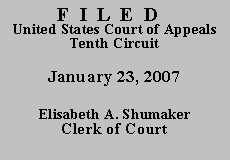

| NICKLIN ME MUCUUTHI,
Petitioner, v. ALBERTO R. GONZALES, Attorney General, Respondent. |
|
At his hearing before the IJ, Mr. Mucuuthi contended that he should not be removed because he is a United States citizen. Mr. Mucuuthi asserted citizenship based on former section 321(a) of the Immigration and Nationality Act. That statute provided that a child born outside the United States of alien parents could acquire automatic, derivative United States citizenship upon fulfillment of the following conditions:
(1) The naturalization of both parents; or
(2) The naturalization of the surviving parent if one of the parents is deceased; or
(3) The naturalization of the parent having legal custody of the child when there has been a legal separation of the parents or the naturalization of the mother if the child was born out of wedlock and the paternity of the child has not been established by legitimation; and if
(4) Such naturalization takes place while such child is under the age of eighteen years; and
(5) Such child is residing in the United States pursuant to a lawful admission for permanent residence at the time of the naturalization of the parent last naturalized under clause (1) of this subsection, or the parent naturalized under clause (2) or (3) of this subsection, or thereafter begins to reside permanently in the United States while under the age of eighteen years.
8 U.S.C. § 1432(a) (1999).(1)
Mr. Mucuuthi asserted that he met the requirements of § 321(a)(3), because his father was a naturalized citizen and had legal custody of him and because his parents were legally separated at the time of his father's naturalization and before Mr. Mucuuthi turned eighteen. Grishon Mucuuthi Ngethe, Mr. Mucuuthi's father, became a naturalized citizen of this country in February 1990. Mr. Mucuuthi's mother was not naturalized. The IJ found that there was "nothing in the record to show that there was ever any legal separation of the parents, through divorce or through any other method." Admin. R. at 30. Therefore, Mr. Mucuuthi could not derive citizenship solely from his father's naturalization. The Board of Immigration Appeals (BIA), agreeing on this point, affirmed the IJ's decision.
The only issue before us in this petition for review is whether Mr. Mucuuthi proved that his parents were legally separated at the time of his father's naturalization. As Mr. Mucuuthi was convicted of an aggravated felony, we can review his petition only with respect to constitutional claims or questions of law. Abiodun v. Gonzales, 461 F.3d 1210, 1215 (10th Cir. 2006); 8 U.S.C. § 1252(a)(2)(C), (D).
Our sister circuits have upheld the BIA's interpretation of the phrase "legal separation," which requires a formal, legal act that alters the marital relationship. See Afeta v. Gonzales, 467 F.3d 402, 406-07 (4th Cir. 2006) (collecting cases). The agency's reasonable interpretation of the statute it administers is entitled to substantial deference. INS v. Aguirre-Aguirre, 526 U.S. 415, 425 (1999). According the requisite deference to the BIA's interpretation of the statute, and after a careful review of the record, we affirm the BIA's determination that Mr. Mucuuthi failed to establish the requisite legal separation.
The petition for review is DENIED. Mr. Mucuuthi's motion to proceed in forma pauperis is granted.
Entered for the Court
Circuit Judge
*. After examining the briefs and appellate record, this panel has determined unanimously that oral argument would not materially assist the determination of this appeal. See Fed. R. App. P. 34(a)(2); 10th Cir. R. 34.1(G). The case is therefore ordered submitted without oral argument. This order and judgment is not binding precedent, except under the doctrines of law of the case, res judicata, and collateral estoppel. It may be cited, however, for its persuasive value consistent with Fed. R. App. P. 32.1 and 10th Cir. R. 32.1.
1. Section 321 was repealed by the Child Citizenship Act of 2000, Pub.L. No. 106-395, 114 Stat. 1631, effective February 27, 2001. Morgan v. Attorney General, 432 F.3d 226, 230 n.1 (3d Cir. 2005). The new Act liberalized automatic derivative citizenship for children by deleting the reference to legal separation of the parents. See id. The Child Citizenship Act, however, does not apply retroactively to Mr. Mucuuthi, because the relevant events (his father's naturalization and his reaching eighteen years of age) occurred prior to the effective date of the new Act. See id.